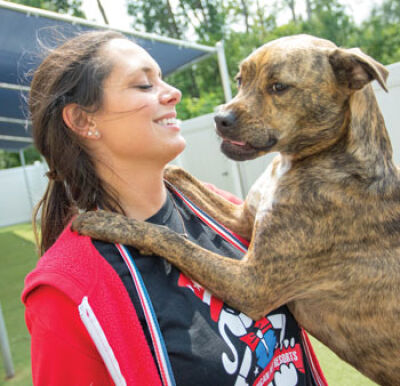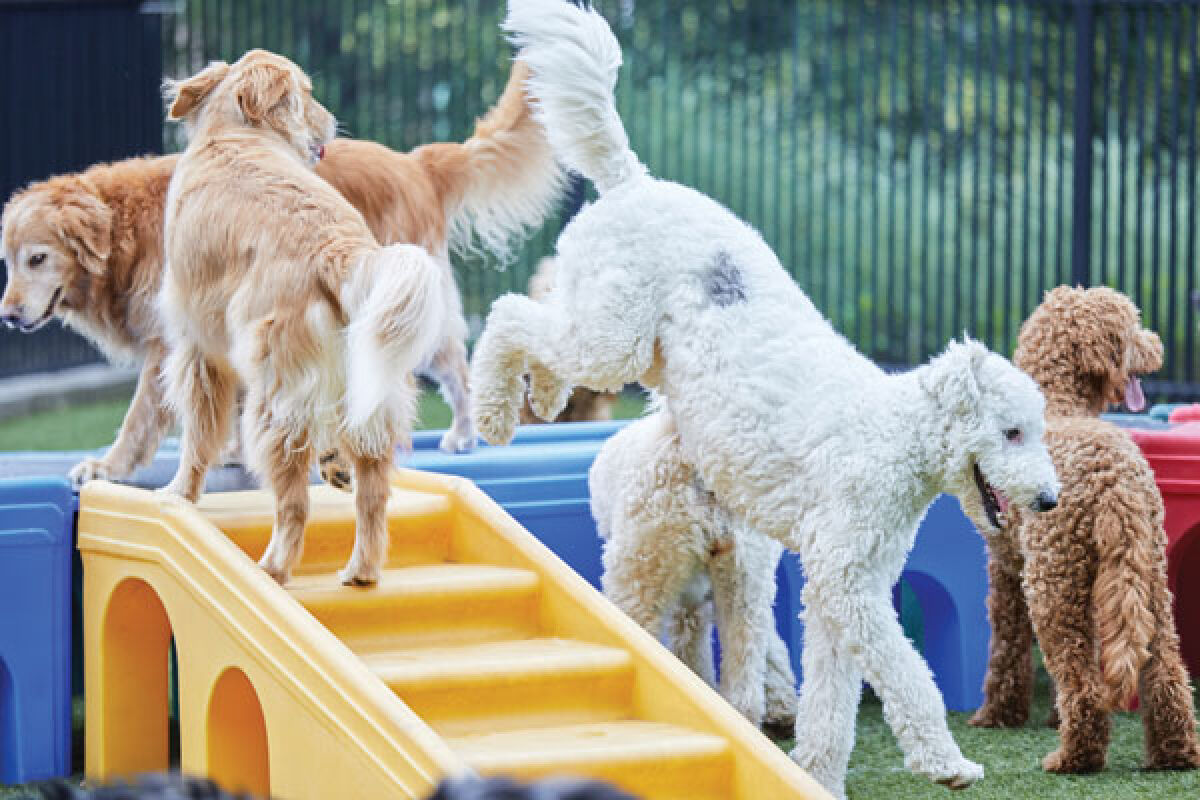
Veterinarians are urging dog owners to ensure that their pets are vaccinated against parvovirus after several reported dog deaths, due to the disease, occurred in northern Michigan.
Photo provided by Stephan Dimitroff
METRO DETROIT — Veterinarians and other pet health experts are trying to allay fears following rumors of an “unknown” disease affecting dogs in northern Michigan.
The condition was confirmed as parvovirus, a well-known condition that can affect dogs, after further testing was performed. Stephan Dimitroff, the executive vice president of All American Pet Resorts LLC, a pet boarding company, said there is currently no need to worry about unknown risks to their dogs.
“There were several dogs dying from an unknown illness, and the Michigan Department of Agriculture and Rural Development worked with Michigan State University’s veterinary diagnostic laboratory,” he explained. “They found out some of the testing done up north wasn’t as accurate as MSU’s, which determined that it was canine parvovirus.”
Dr. Mike Derkevorkian, the head of Maple Veterinary Hospital in Troy, said that parvovirus is well documented and is easily preventable through vaccination.
“Parvovirus is a virus that is spread through fecal matter from other animals with it,” he said. “The symptoms include bloody diarrhea and bloody vomiting. Vaccinating your pets is the way to prevent it.”
Dimitroff said that dogs are only at risk of parvovirus if they are unvaccinated.
“It’s not a matter of having to take action to handle the virus since a dog can be vaccinated against parvovirus,” he said. “They don’t really get sick if they’re already protected. The dogs in northern Michigan were mostly younger pups which weren’t vaccinated yet. That is why they got sick.”
He added that parvovirus is usually included in the ordinary collection of preventative shots recommended by veterinarians. He did suggest that pet owners who are worried speak to their vet to make sure parvovirus was included in their dog’s shots.
“Normally, the vaccination is part of the combined vaccinations pet owners pay for as a group. It does require payment,” he said. “People can talk to their vets to make sure their dog is current on it, if they are concerned. There is no reason pet owners can’t continue their planned activities or travel with their pet so long as they are properly vaccinated.”
“People only have to be worried if their pet is not up to date on their vaccines or if they are a puppy and haven’t completed all of their vaccines,” added Derkevorkian. “It’s critical to get pets vaccinated to keep them safe and healthy. These diseases are still around, and vaccination prevents them, including conditions like parvovirus and leptospirosis.”
Both Dimitroff and Derkevorkian said they have spoken with pet owners concerned about the rumors of the cases in northern Michigan, but they want people to know there is a simple solution for the situation.
“We never had any cases in any of our facilities, but we saw a significant drop-off in boarding and day care for their pets,” Dimitroff said. “Pet parents didn’t know what this virus was, and they were worried, so we saw a significant decrease in business.”
“We have had a lot of phone calls and pet owners reporting vomiting and diarrhea (from their dogs),” added Derkevorkian. “Our staff was informed about this case of parvovirus, and we were able to inform them about the facts.”
Dimitroff said that most pet care facilities, particularly his own, take rigorous measures to prevent the spread of infectious diseases.
“Our boarding facilities have some of the most rigorous cleaning protocols in the state,” he said. “We clean our facilities on a daily basis; we clean every indoor and outdoor play area; we clean any suite a dog stays in before another is put in there. Waste is cleaned up immediately. We also have UV light HVAC filtering systems to combat airborne illnesses. Just keep in mind that the best protocol people can take to keep their dog from getting sick is vaccination, and vaccinations need to be given before they get sick.”
 Publication select ▼
Publication select ▼




























